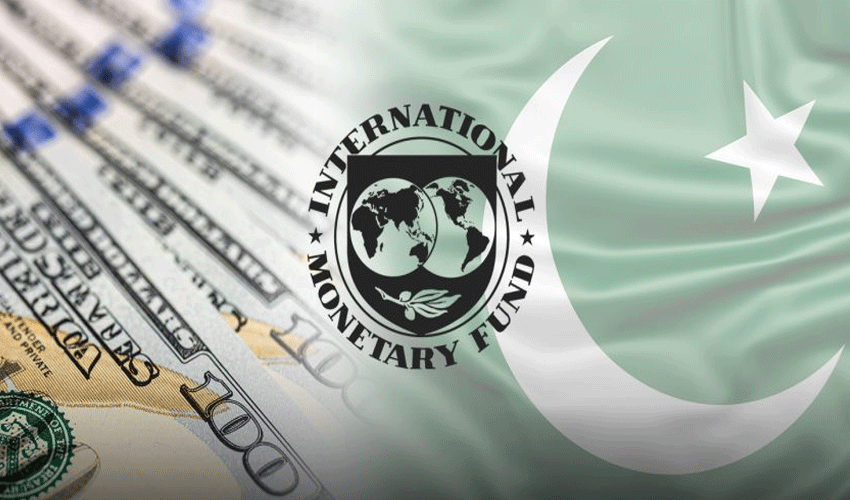Pakistan is pressed by the IMF on cyclical debt reforms and budget surplus.

The International Monetary Fund (IMF) is asking Pakistan to explain the decline in provincial budget surpluses and to take quick action to stop the flow of circular debt in the energy sector as part of the second half-yearly economic review talks between the two countries.
The IMF delegation has reportedly challenged provincial governments to explain why their total budget surplus only reached Rs921 billion, falling short of the Rs1,200 billion target.
A surplus of Rs348 billion was reported by Punjab, Rs283 billion by Sindh, Rs176 billion by Khyber Pakhtunkhwa, and Rs114 billion by Balochistan. On September 29 and October 1, the Khyber Pakhtunkhwa administration will provide the IMF mission with separate briefings.
Reforms in the energy sector are under pressure.
The IMF also expressed concerns about Pakistan’s energy industry, calling for recommendations to lower capacity rates as well as a clear plan to prevent power theft and line outages. The delegation was briefed by Power Division officials on developments, including a Rs1,225 billion loan deal with banks that aims to eradicate circular debt in six years.
RELATED: Pakistan’s failure to meet the Rs12.97 trillion tax collection target worries the IMF
Without imposing additional costs on consumers, the government promised the IMF that payments would be made from the current levy of Rs3.23 per unit. In addition, officials pointed out that loans had decreased to Rs397 billion from the initial projection of Rs635 billion.
Restructuring and privatizing loans
According to IMF briefings, the new deal involves both new funding of Rs565 billion and the restructuring of existing loans totaling Rs660 billion. There are also continuing talks with private power companies about rerouting excess electricity to the mining industry and the industrial sector.
The IMF was updated on the status of the privatization of three lucrative businesses and urged the government to expedite governance changes in electricity distribution firms (DISCOs). In the upcoming months, it is anticipated that enterprises that are losing money would be turned over to private management.
Issues with tax revenue
The IMF examined Pakistan’s revenue performance in addition to energy-related concerns. The Federal Board of Revenue (FBR) revealed that it did not meet the Rs12.97 trillion target last year, instead collecting Rs11.74 trillion. The main causes of the deficit, according to officials, were unsettled tax cases totaling more than Rs250 billion, poor economic activity, and severe floods.
Notwithstanding these obstacles, Pakistan was able to keep the fiscal deficit to 5.4% of GDP and post the largest primary surplus in 24 years, Rs2.4 trillion. Additionally, the number of people filing income taxes increased from 7 million to 7.7 million.